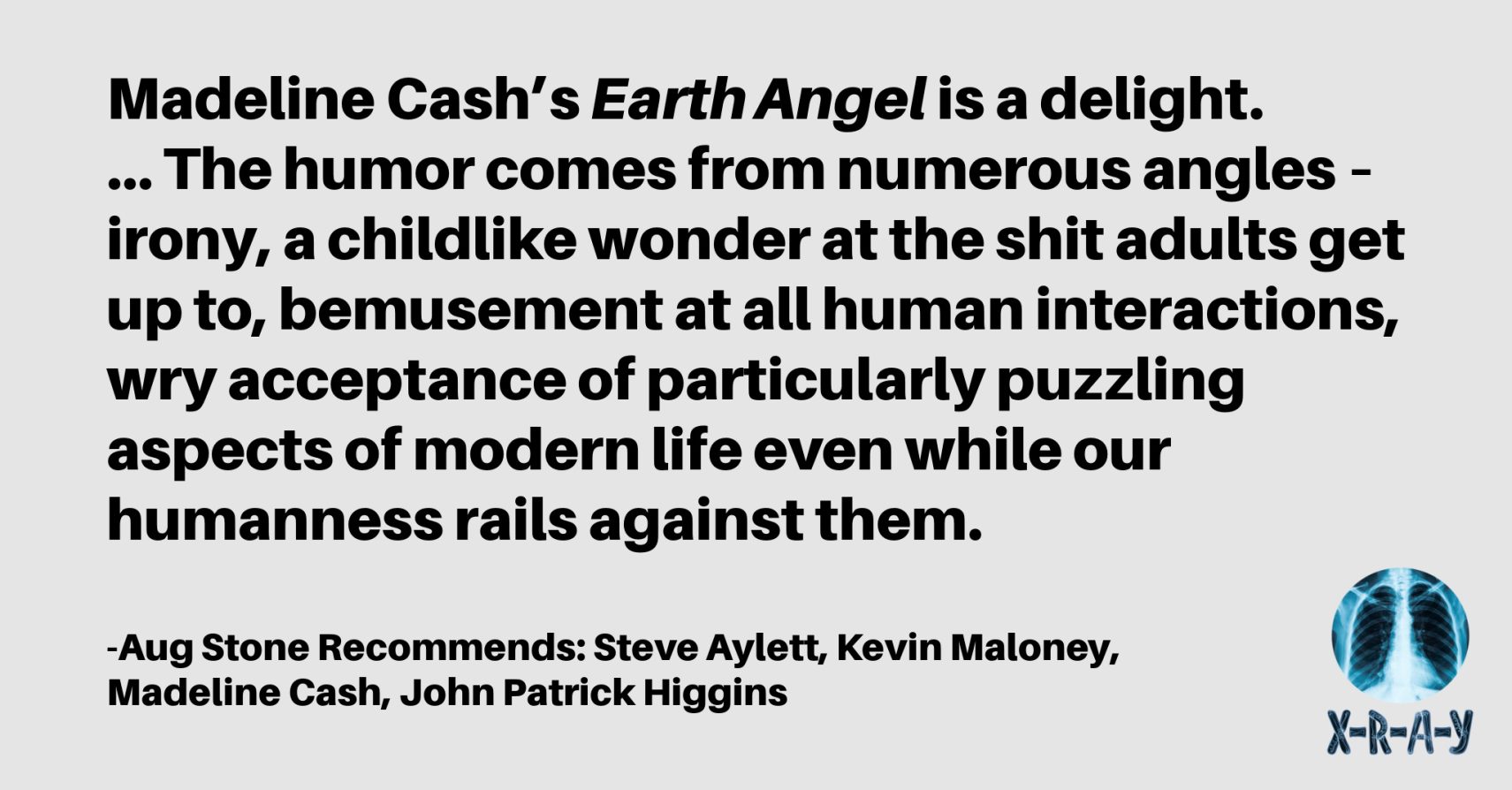
AUG STONE RECOMMENDS: Steve Aylett, Kevin Maloney, Madeline Cash, John Patrick Higgins
Steve Aylett, The Book Lovers (Snowbooks, 2024) Steve Aylett is back with a new novel that could very well be his best work yet. In The Book Lovers, Aylett’s fireworks are at maximum intensity – dazzling, dizzying, and coming straight at you. Launched from one of the all-time great opening lines – ‘A book is like you and me – glued to a spine and doing its best’ – the text is hilarious, profound, and just a delight to engage with. Almost every sentence is rich, full of meaning, and contains enough avenues of thought to construct a city…
